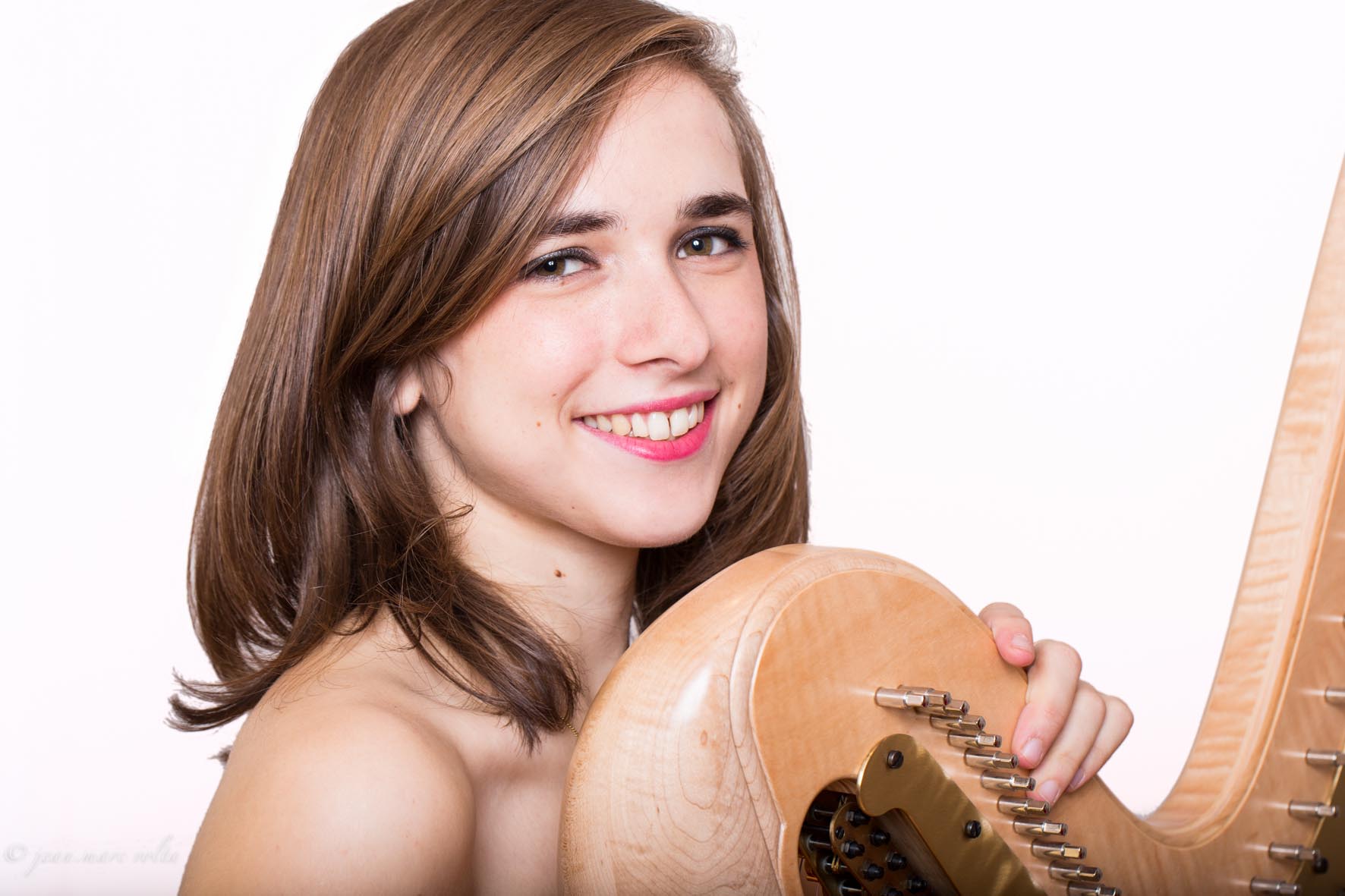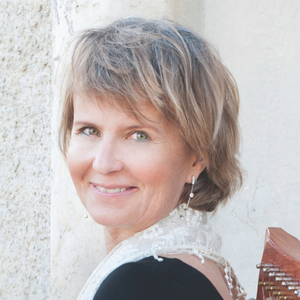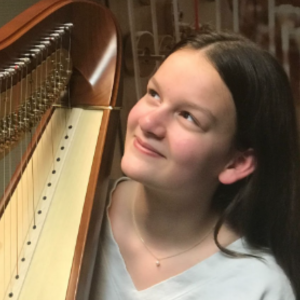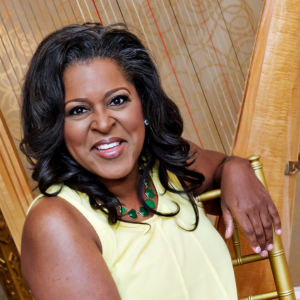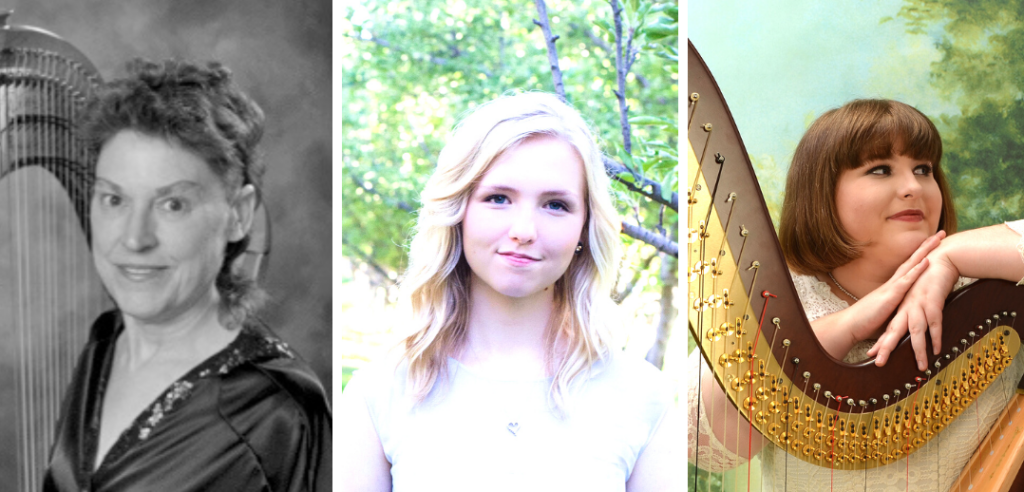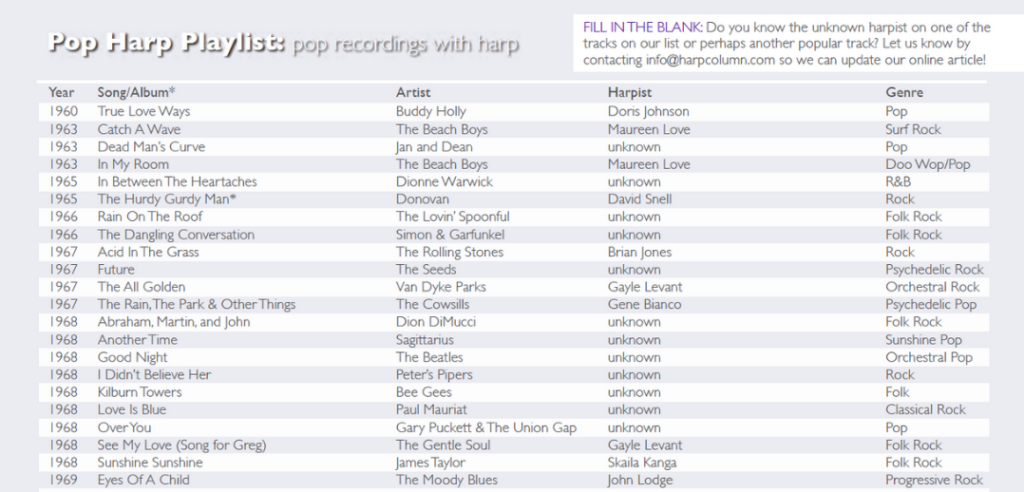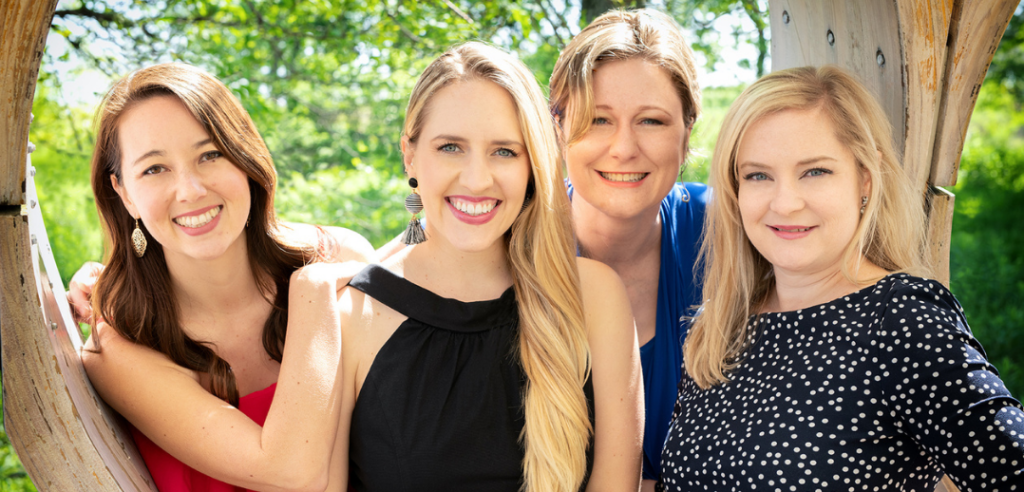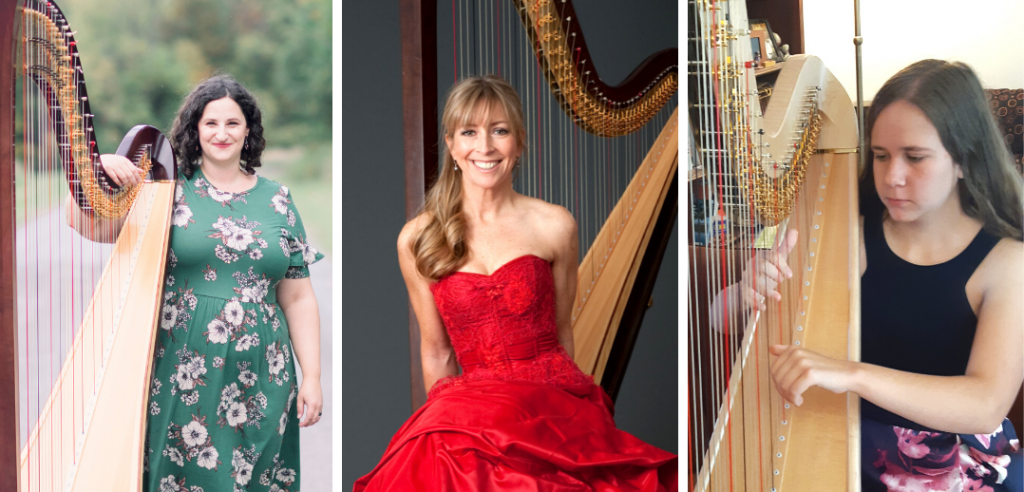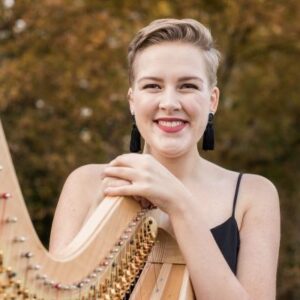(This article is a companion to our feature interview, Crowning Achievement.)
The distance between first and second in an international-level competition is never much, sometimes not even enough to be objectively measured. But as any runner-up will tell you, second isn’t first, and it can be a difficult pill to swallow. Anaëlle Tourret took her second-place Israel harp contest finish in graceful stride, with perspective far beyond her 23 years. We wanted to know more about this compelling performer, so after talking to Tourret at the contest we caught up with her a few weeks later in Paris via Skype.
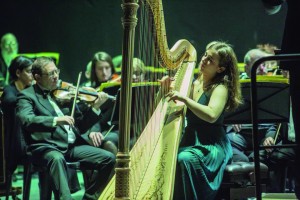
Harp Column: Anaëlle, you are a beautiful player and one of the most musical harpists I have ever heard. I am sure you have a successful career ahead of you and we will be seeing much more of you in the future. We spoke on the stage just minutes after the awards ceremony. I think that it must be difficult to win second place yet you were so gracious and poised. I was impressed by the way you and YuYing laughed together on stage and treated each other as friends.
Anaëlle Tourret: I think that everything happens for a reason. Since I was a child, I heard about the International Harp Contest in Israel. Just reaching the final stage and performing the Ma’ayani concerto with the orchestra was a dream come true for me.
HC: What does it really take—besides talent, good teachers, and lots of practicing—to compete at an international level? What advice can you offer other harpists?
AT: You will feel alone—very alone—with your instrument, and you need people to support you. My family and friends gave me tremendous support. I wouldn’t have been in Israel without them.
HC: You looked so calm and in control when you performed. What did you think about when you were competing?
I now realize that my role is to be the one who gives the music to the audience, and I am trying to forget the ‘me’ part on stage.
AT: It used to be difficult for me, because I suffered from stage fright. I now realize that my role is to be the one who gives the music to the audience, and I am trying to forget the “me” part on stage. I share the composer’s music and present it to the audience.
HC: In the semi-finals, it was clear to the audience that you are an experienced player of chamber music. Your cues to the other musicians in the string quartet were perfectly clear, and we could feel you breathe together even though you just met! You must have been playing chamber music for many years.
HC: You are so musical. Your sense of phrasing is exquisite. Do you come from a musical family?
AT: I have performed a lot of chamber music, of course the Debussy, Ravel, and others. I especially enjoy performing some of the lesser-known works. I also studied 10 years of classical ballet. This has helped me to feel the music in my body.
AT: My parents are both musicians. My father is a flutist and became the director of a music school. My mother directs chamber music and is a choral director. I was raised listening to recitals of all instruments and attending many symphony concerts.
HC: Where did you study and where do you live now?
AT: After I finished my bachelor’s degree in Paris with Ghislaine Petit-Volta, I moved to Hamburg to study with Xavier de Maistre in the Hochschule für Musik where I received my master’s degree in June, 2015.
HC: Why did you choose to continue your studies in Germany?
AT: There are more opportunities in Germany. I think Germany is the center of classical music today in Europe.
HC: What would be your dream career?
AT: I would deeply love to be in an orchestra. I would also like to be part of an ensemble, and my passion is working on contemporary works with composers. I would love to do them all.
HC: What attracts you to contemporary music?
AT: All composers were contemporary when they were writing their music. I think about the colors—the colors created by the sound. It can be Renié or Holliger. They share in common a sense of light and color. I believe that every music student should play modern music from the very beginning of their studies so they can understand that it is a language. As musicians, we need to understand this new way of creating colors and shaping phrases in order to properly interpret contemporary works.
HC: You are 23 and ready to launch your career. What advice do you have for other harpists who are younger and wish to have a career in classical music?
AT: It is no longer enough today to just say, “I want to play the harp.” The level is very high and each year seems to get higher. The harp repertoire is very small and much of it is treated as if it is “salon” music. Harpists have to work with composers to build a repertoire that stretches the boundaries of the harp and also draws an audience. •






